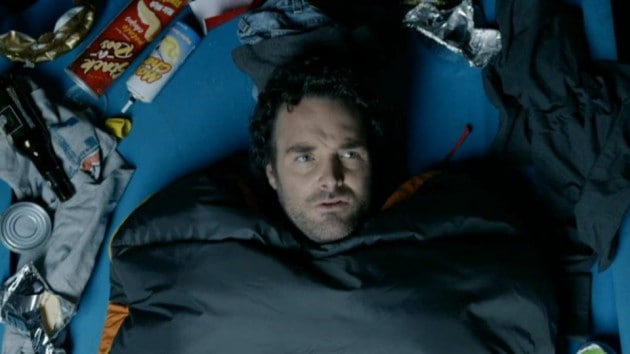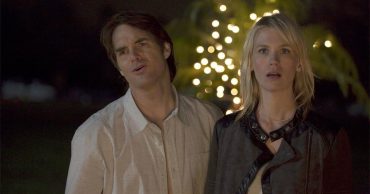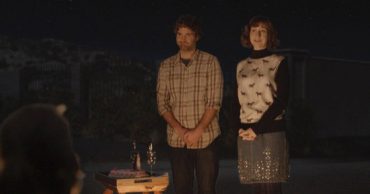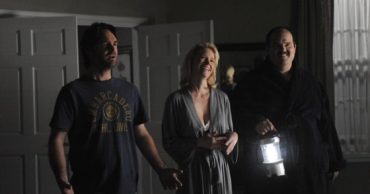
It would’ve been nice if “Pranks for Nothin” occurred a little bit earlier in The Last Man on Earth‘s first season. Beating the same drum of “Phil’s a jerk” over and over for two months wore me out on the character of Phil Miller and the cul de sac of Tuscon pretty quickly, especially as Phil’s selfish behavior completely consumed every other character around him. Melissa, Todd, and Carol have all existed as one-dimensional vehicles for Phil to awkwardly lie around in recent episodes, which has really robbed The Last Man on Earth of any redeeming qualities in recent weeks, and although “Pranks for Nothin” isn’t a complete change of direction for the show, its ending is the first promising scene of the series since the pilot.
Really, it’s just nice to hear Phil talking to God again in the beginning of “Pranks for Nothin”; Phil talking to God means he’s lonely again, which is the closest thing we’ve seen him to being an actual human being. He reflects on his own behavior, which is something the show’s direly been missing in recent weeks: while it speaks to the dedication in Will Forte’s construction of the character through this first season, Phil’s relentless sexual pursuit of Melissa (and then Gayle and Erica, who Phil lies to so he can sleep with, of course) has been a drag, an overwrought depiction that has lacked any sort of maneuverable nuance. It didn’t need to be so heavy-handed to get to this particular place in the story: ultimately, the show wants Phil to be an empathetic character, one whose growing pains endear him to the audience, rather than turn them off for the show altogether.
Phil finally coming face to face with his lies is an important step forward, regardless: not only does it re-instate some agency to the other characters in the cul de sac (who shun him, even the magnanimous master of lactose, Todd), but it shows The Last Man on Earth has been building towards something – which is admirable, even if there are still some deep flaws in how the story was constructed. Phil being banned from the cul de sac and divorcing Carol are both important turning points for the show: look no further than to how quickly the show’s able to shed some of the ugliness of “The Do-Over” (and the seven chapters preceding it) to see how integral Carol and Phil’s conversation at the end of “Pranks” is to the overall construction of the season.
The change in tone is jarring, but was direly needed, and the addition of Mary Steenburgen (and Cleopatra Coleman, though my heart has always belonged to Steenburgen) to the show, at least in the short term, adds another brand of comedic energy The Last Man on Earth can benefit from, something a little more muted than the lovable caricature that is Carol, or the listless person the show’s made Melissa in recent episodes, as her growing disdain for Phil has swallowed any other personality trait she might have beyond “hot girl” (Todd remains the show’s richest character, oddly enough). Phil’s horrible personality has completely consumed the show in the last month – which is to be expected, given the series’ name, but still a disappointing turn of events when the vortex of jerkishness he creates sucks any and all life out of the show.
While it would be silly to say the last five minutes of “Pranks for Nothin” is a cure-all for the problems of the previous three-plus hours, it creates an intriguing bridge between the first season’s second and third acts that at the very least, setting the show up for a potential late-season comeback as Phil deals with being alone once again, divorced from Carol, and shunned from his own community (though Carol does invite him to return at the end of “Pranks,” it doesn’t appear Phil will be moving back into his house anytime soon). Five minutes of promising material in nine episodes is nothing to be super excited about, but hopefully, The Last Man on Earth will embrace the climatic moment of “Pranks” and return to the unsettling, contemplative material that made its early episodes such compelling, unique television.
[Photo via FOX]
 Follow Us
Follow Us





